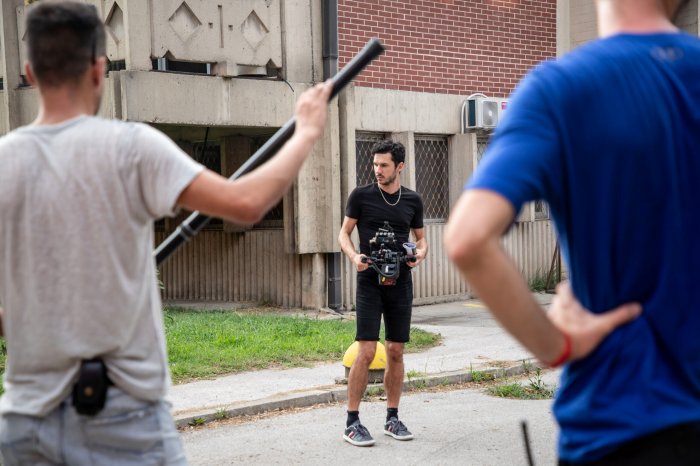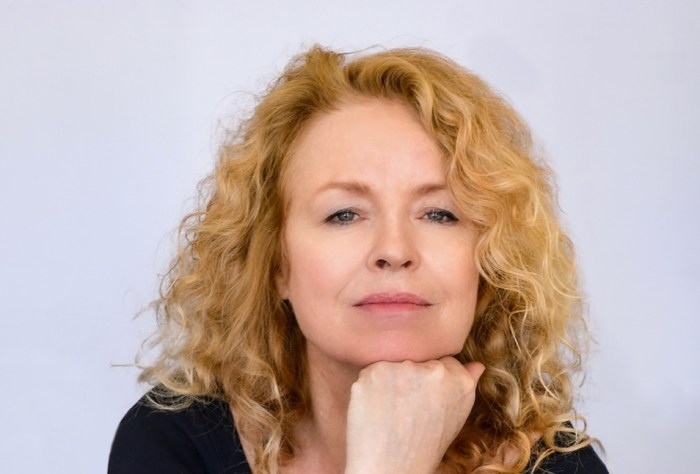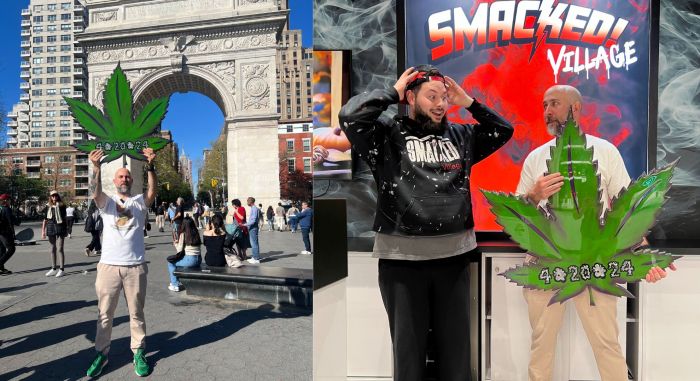Léa Seydoux and Kacey Mottet Klein in Ursula Meier’s “Sister.” | ADOPT FILMS
Were “Sister” an American film, rather than Swiss, it would no doubt play its tale of the relationship between a young woman, who drifts from one casual boyfriend’s bed to another, and her 12-year-old brother, who’s a professional thief, for moral outrage. Director Ursula Meier makes it clear that poverty is a burden and, in the long run, crime doesn’t pay, but beyond that, she has no interest in passing judgment on her characters.
“Sister” also shies away from the social consciousness usually shown by American films about poor people. The film has no political axe to grind, and it seems unconcerned with how its characters wound up in such dire circumstances. Apart from a plot twist halfway through, it avoids backstory. Meier’s too busy simply observing her characters to moralize or editorialize about them.
Simon (Kacey Mottet Klein) lives with his sister Louise (Léa Seydoux) in a tower near a luxurious ski resort. Constantly broke, she’s a drifter. As a result, Simon turns to crime to provide a living for the two. Each day, he travels to the resort and busies himself stealing skis and other equipment from rich people. Then he returns to the town below and sells the equipment to his friends and other locals. His sister is grateful he can keep their family afloat. Their parents are nowhere in sight; when asked about them, Simon says they died in a car accident.
Simon’s thefts can only be carried out for so long. Eventually, he becomes a familiar, recognizable face in the resort, and when he teams up with a British worker, the situation really goes awry.
“Sister” makes Swiss ski resorts look heavenly. Agnes Godard’s lovely cinematography captures the look and feel of a Swiss winter, as well as the subtle changes over the course of a season. (The film takes place from December to April, and the dry ground in its final scenes comes as a shock.) Meier’s direction is self-consciously beautiful.
Everyone around Simon seems to be having fun, while he’s busy figuring out how to backstab them. Taking the cable down to street level is like a banishment from paradise. By Swiss standards, Simon and Louise live in a slum, although there’s nothing dangerous (she seems to be okay when she passes out drunk in the street one night) or even all that unattractive about the tower where they dwell.
Meier mixes elements of naturalism with the conventions of crime dramas and thrillers, ending her film on an ambiguous note. Simon echoes the child protagonists of some of Robert Bresson’s films, although he’s more cheerful than most of them as well as the adult title character of Bresson’s “Pickpocket.”
This stew of influences brings to mind the Dardenne brothers, whose work over the past 15 years has made neo-realism hip again. Their style, in which a jagged handheld camera follows actors closely, is instantly recognizable and easy to copy. Meier’s direction suggests a familiarity with their work, but any exposure she has to their influence never leads her into imitation. She doesn’t rely on shakycam.
“Sister” depicts a world where no one has really grown up. The ski resort is devoted to fun and leisure. Even if Simon were able to successfully go on stealing skis there the whole season, eventually it would end and he’d have to find a new source of income. What did he do for money before December and what will he do after April? The film never even raises the former question, and while a character brings up the latter, Simon ducks it.
Even at 12, he seems more mature than Louise. She looks younger than her age — she must be in her mid-20s — and has little sense of adult responsibility. She’s happy enough to coast along in life and let Simon take care of her financially. When she does finally try to grow up and take on a real job, Simon wrecks that chance, perhaps out of an unconscious desire to keep her dependent on him. That twist changes our perceptions of Simon and Louise, but it comes early enough so there is time to process it. It never feels like a gimmick.
“Sister” isn’t exactly a conventional coming-of-age story. At the finale, a ski resort closes down at the beginning of spring, suggesting that no one really ever matures unless life forces them to.
SISTER | Directed by Ursula Meier | In French with English subtitles | Adopt Films | Opens Oct. 5 | The Angelika | 18 W. Houston St. at Mercer St. | angelikafilmcenter.com | Lincoln Plaza Cinema | 1886 Broadway at W. 63rd St. | lincolnplazacinema.com


































